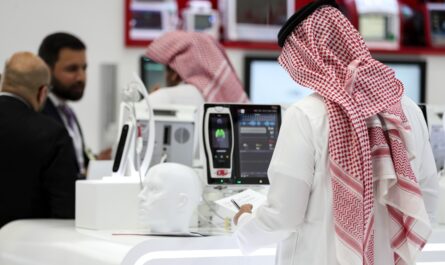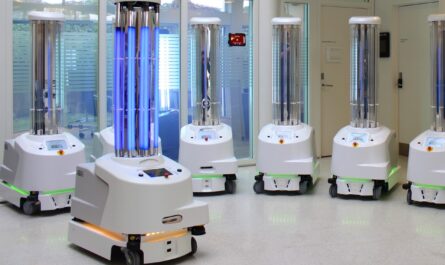The Smart Home Healthcare Market has witnessed significant growth in recent times owing to increasing adoption of artificial intelligence technologies across the healthcare sector. Smart home healthcare products such as wearable devices, AI-enabled medical equipment and monitoring systems provide remote health monitoring capabilities by connecting patients and caregivers via wireless devices and networks. These connect enabled medical devices to physicians and facilitate collection of vital health parameters from the comfort of home. The growing elderly population suffering from chronic diseases is further driving demand for smart remote patient monitoring solutions to reduce hospital visits and ensure timely medical intervention.
The global Smart Home Healthcare Market is estimated to be valued at US$ 17.59 Bn in 2023 and is expected to exhibit a CAGR of 7.8% over the forecast period 2023 to 2030, as highlighted in a new report published by Coherent Market Insights.
Market key trends:
Artificial intelligence is being increasingly adopted across the smart home healthcare sector to gain richer and deeper insights from patient health data collected through IoT-enabled medical devices and sensors. AI algorithms can detect patterns and abnormalities, predict risk of diseases and streamline diagnosis. They are also being used to develop virtual assistants and chatbots to provide non-clinical assistance and address consumer health queries. As healthcare data becomes more integrated with smart home technologies driven by AI, opportunities around predictive, preventive and personalized care delivery are expected to rise in the coming years. This will transform remote digital healthcare and patient monitoring globally.
Porter’s Analysis
Threat of new entrants: Low threat as this market requires significant investment in R&D to develop smart home healthcare solutions.
Bargaining power of buyers: Low as buyers have limited options and switching costs are high once invested in a particular smart home healthcare system.
Bargaining power of suppliers: Suppliers have moderate bargaining power as there are many component providers and manufacturers in this market.
Threat of new substitutes: Low threat as there aren’t close substitutes that can provide similar monitoring, connectivity and remote accessibility as smart home healthcare systems.
Competitive rivalry: High as key players like Shell, Intertek Group, Bureau Veritas SA, SKF, SGS actively compete on the basis of technology, features and pricing.
Key Takeaways
The Global Smart Home Healthcare Market Size is expected to witness high growth at a CAGR of 7.8% during the forecast period of 2023 to 2030. The market size is projected to reach US$ 17.59 Bn by 2023.
Regional analysis: North America dominated the global market in 2022 and is expected to maintain its lead till 2030. This can be attributed to growing geriatric population, increasing adoption of remote patient monitoring solutions and supportive regulatory environment in the region. Asia Pacific is anticipated to be the fastest growing market owing to rising healthcare expenditure, growing disease burden and rapid infrastructure development.
Key players:
Key players operating in the smart home healthcare market are Shell, Intertek Group, Bureau Veritas SA, SKF, SGS. Shell offers smart home healthcare solutions that remotely monitor health parameters like blood pressure, temperature etc. Intertek Group provides third party testing and certification services for smart home medical devices. Bureau Veritas SA focuses on quality and safety testing of connected healthcare products. SKF and SGS offer condition monitoring and analytical testing respectively for smart home medical equipment.
*Note:
1. Source: Coherent Market Insights, Public sources, Desk research
2. We have leveraged AI tools to mine information and compile it



